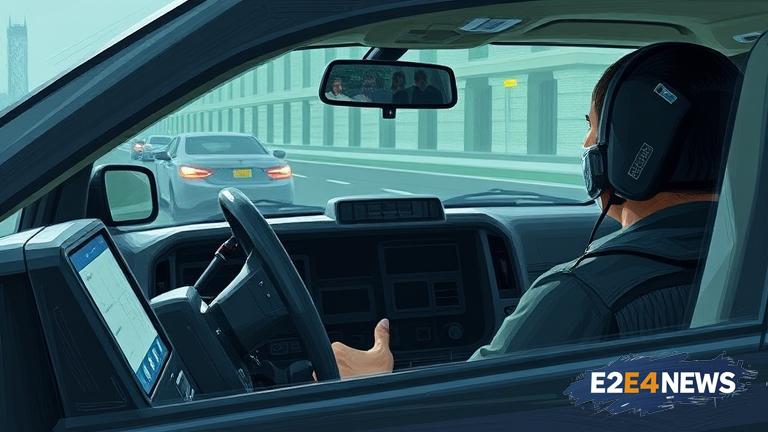The gig economy has come under intense scrutiny as Uber, the ride-hailing giant, finds itself at the center of a heated debate over the employment status of its drivers. In a landmark case, a group of Uber drivers has taken the company to court, arguing that they should be classified as employees rather than independent contractors. This move has sparked a wider conversation about the rights and protections of workers in the gig economy. The case has significant implications for the future of work, as it could set a precedent for other companies operating in the gig economy. Uber has long maintained that its drivers are independent contractors, allowing the company to avoid providing benefits and job security. However, the drivers argue that they are, in fact, employees, and are therefore entitled to the same rights and protections as traditional employees. The case is being closely watched by labor unions, worker advocacy groups, and policymakers, who are eager to see how the court will rule. The gig economy has grown exponentially in recent years, with millions of workers around the world relying on platforms like Uber, Airbnb, and TaskRabbit to make a living. While the gig economy has created new opportunities for flexible work and entrepreneurship, it has also raised concerns about exploitation, inequality, and lack of job security. The Uber case has highlighted the need for clearer regulations and protections for workers in the gig economy. As the court deliberates, experts are weighing in on the potential consequences of a ruling in favor of the drivers. If the court rules that Uber drivers are employees, it could lead to a significant shift in the way that companies operate in the gig economy. It could also lead to increased costs for companies like Uber, as they would be required to provide benefits and job security to their drivers. On the other hand, if the court rules in favor of Uber, it could embolden other companies to classify their workers as independent contractors, potentially leading to further exploitation and inequality. The case has also sparked a wider debate about the future of work and the need for a new social contract that protects the rights of all workers, regardless of their employment status. As the gig economy continues to grow and evolve, it is clear that policymakers and regulators will need to adapt to ensure that workers are protected and that companies are held accountable for their treatment of employees. The outcome of the Uber case will be closely watched, as it has the potential to shape the future of work for millions of people around the world. In New Zealand, where the case is being heard, the government has been under pressure to introduce new regulations to protect workers in the gig economy. The case has also highlighted the need for greater transparency and accountability in the gig economy, as well as the need for workers to have a stronger voice in negotiations with companies. Ultimately, the outcome of the Uber case will have significant implications for the future of work, and will likely set a precedent for other companies operating in the gig economy.
